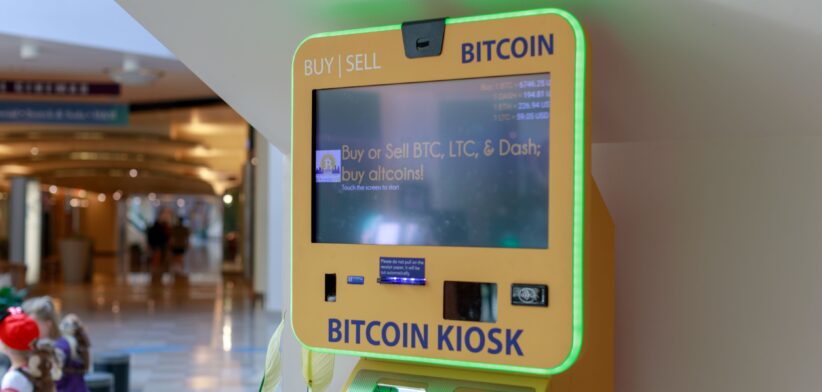Cryptocurrency Automatic Teller Machines (ATMs) are the latest battleground in the fight against scammers, with more than $3 million lost last year.
Australian Federal Police (AFP) Commander Graeme Marshall said AUSTRAC projected about $275 million was being moved through crypto ATMs in Australia every year and intelligence suggested a large number of these transactions were scam related.
Commander Marshall said the Australian Cyber Security Centre (ACSC) had received 150 unique reports of scams involving crypto ATMs in 2024, with an estimated loss of $3,107,600.
“This equates to one report every two and a half days, each with an average loss of more than $20,000,” he said.
“And this figure may be just the tip of the iceberg.”
He said the volume of money passing through crypto ATMs indicated significant under-reporting of money lost to scams involving crypto ATMs.
“Intelligence on crypto ATMs suggests everyday Australians are losing significant funds to crypto ATM scams, significantly more than is currently being reported to authorities.
“This could be because victims don’t realise they’ve been the victim of a crime, they don’t know how to report scam activity, or they feel embarrassed because they were scammed.”
Commander Marshall said AUSTRAC data showed the majority of crypto ATM users were aged over 50 and accounted for more than 70 percent of all transactions by value.
He said this indicated the portion of the population being targeted by scammers.
“A crypto ATM allows users to buy or sell cryptocurrency with cash, and can be exploited by scammers who pressure victims into using these machines to send them cryptocurrency.”
Commander Marhsall said since 2019 the number of active crypto ATMs in Australia had increased more than 15-fold, from 23 to more than 1600 in 2025.
He said there were common warning signs associated with crypto scams and crypto-related scams.
“These can include being asked to deposit cash into a crypto ATM for any reason, offers or requests with an extreme sense of urgency, or crypto investments promising ‘guaranteed’ high returns with no risk,” he said.
“If something sounds too good to be true, it probably is. Always be cautious of strangers or new romantic partners asking you to ‘invest’ in crypto. Never send cryptocurrency to someone you haven’t met in person, especially for investments, loans or payments.
“If a company claims you owe money, contact them directly through official channels listed on their website. No legitimate government agency, bank, utility company or business will ever ask for payment via cryptocurrency.
“If in doubt, stop and talk to a trusted family member or friend about the situation.”








